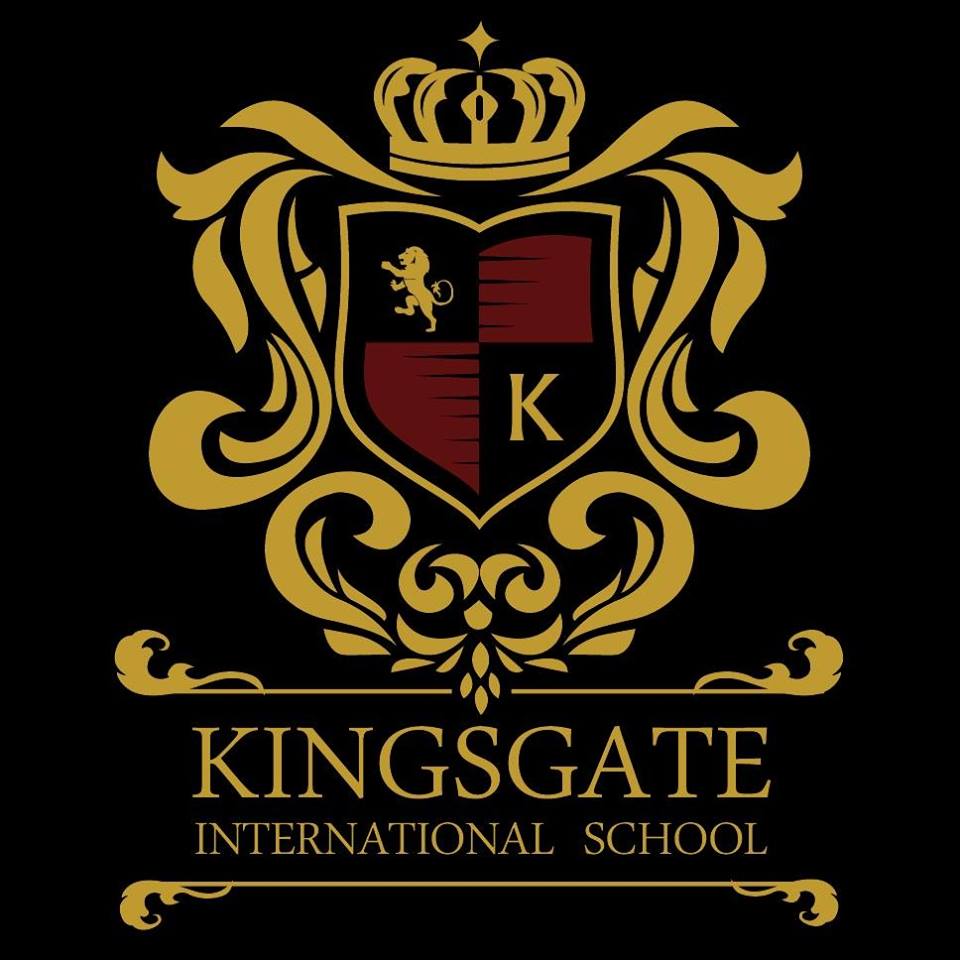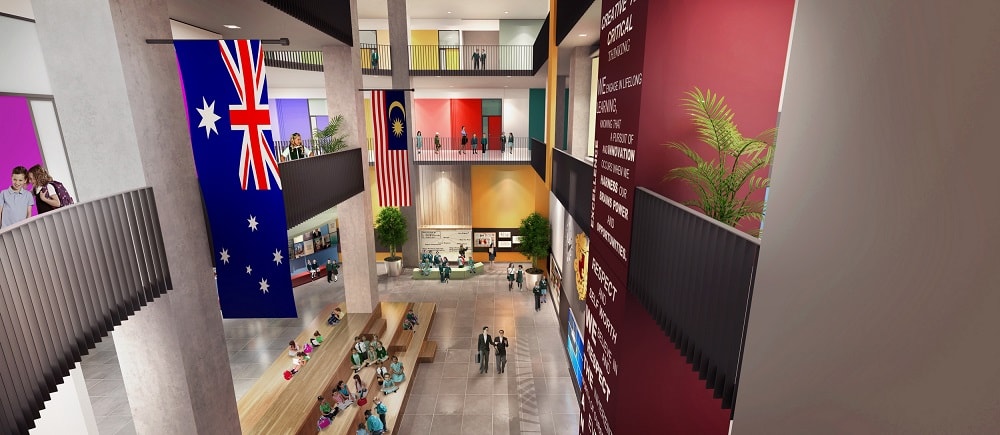
This article is brought to you by Kingsgate International School.
There are over 100 international schools in Malaysia now so parents are truly spoilt for choice when it comes to selecting the right one for their children. However, as a parent, you may not even know what exactly to look for in a school or what questions to ask when checking out a school.
Mr Greg Parry, an expert in Student Management is CEO of Global Service in Education and is on the School Advisory Council of Kingsgate International School. Here are his suggestions on what you should consider and questions to ask when looking for an international school.
1. Classroom Size
The classroom is, after all, where much of the learning takes place. We know that traditional classrooms have limited impact on all children compared to programs that can meet the needs of each individual child. The average student retains only about 50% of what they see, hear, and read in a classroom. It is also important to note that learning isn’t just limited to the short periods of classroom time when a teacher is in the room. But if we extend that view and see that learning can happen outside the classroom as well, students will be better life learners and better at retaining what they’ve learned in class.
Questions to ask:
- What is the classroom set up?
- When does learning happen?
2. Price
One of the biggest factors for parents when choosing an international school is ‘value for money’, which is a fair question to ask. However, parents should remember that schools are expensive because they employ expensive educators who are experienced and well-trained, with native English speaking background.
As a parent, one of the things you should be looking at is where a school’s teachers come from, what qualifications do they have, and how often do employed teachers receiving training. You should verify if the foreign teachers are in fact fully qualified and if that matches up with the tuition fees being charged. Just because a school is labelled as an ‘International School’ with ‘Foreign Teachers’, that doesn’t guarantee value for money or even quality.
Questions to ask:
- Where are the teachers from?
- What are the teacher’s qualifications?
- Do teachers receive continuous training?
3. Teacher & Principal Turnover
High staff turnover is a big issue for any business in any industry, including education. According to research, the average tenure of an international school teacher is 3.2 years in one location. So that’s your baseline. If the school you’re looking at has a much lower average, then that is a strong sign that the school itself is below average. There can be many reasons for high turnovers, though, some of which include management, and how supported and empowered the staff feels. After all, teachers care passionately about what they do and money alone doesn’t satisfy them. The same goes for principal turnover, the average of which is four to five years.
Questions you should be asking:
- What is the average tenure of teachers and principals at the school?
4. Decision-Makers
Private international schools are likely led by two types of leaders: an educator whose passion is to lead a school where students become successful, both academically and socially; and a business person whose main focus is ultimately to run a good and profitable business for themselves and their shareholders. It may seem that these goals contradict each other but that is not necessarily so. Schools are profitable and successful when parents and students are satisfied by the quality of education being delivered. So it’s imperative that both parties are clear about achieving these goals which can be done when visions are aligned and quality education is made a priority.
Questions to ask:
- Who makes the decisions in the school?
- How much leeway do educators get when crafting the programs?
5. Educational Leadership
It’s natural to assume that a school’s excellence can be measured by the number of students who are coming up with great grades. Successful students are hard to miss; they are rewarded for excellence and are constantly applauded. However, you have to also pay attention to the average students, as the progress of these students is the real indicator of the school’s success. Are the C students in time getting C+, are the B- students getting Bs? No child should be anonymous and every student should have their needs met.
Teachers have to be accessible and their methods transparent. Each students’ progress should be monitored, and not just via scheduled testing. Also, parents should be regularly updated on their child’s progress by teachers with clear plans on how to respond to negative results.
Questions to ask:
- How is progress monitored?
- What is the ‘distance travelled’ by the average student?
6. School Vision & Mission
Often, the school vision and mission is considered ‘window dressing’, a mere marketing hype. In truth, a schools vision is and should drive all decisions made with regards to the school, whether that’s a focus on sciences, arts, humanitarian ideals, or language development. It should be clear to any observer what the school wants to accomplish. If the vision aligns with your expectations and needs as a parent, don’t be afraid to ask the school how they plan on following through with that vision and achieving what they’ve set out in their mission statement.
Questions to ask:
- What are the schools vision and mission?
- What are the practices and experiences that truly demonstrate that the school is aligned with their vision and mission?
7. Technology
Technology is an important aspect in any modern school, but often schools implement fancy technology just for the sake of it to make the school look advanced and superior. Instead, schools should embrace the use of technology in learning and incorporate it seamlessly to provide a learning experience and approach that can maximize learning through technology. The goal here should be to increase student achievement. However, there also has to be a system in place to guide the usage of technology and provide protection from access to inappropriate materials.
Questions to ask:
- What training are teachers and students getting on using the technology available in school?
- How often are the systems updated and evaluated?
- How is technology integrated in the learning process, both inside and outside the classroom?
8. Teaching Quality
As a parent, you may not be sure about how best to judge the quality of teaching. The instinctive thing to do is look at personality, charisma, and likability. While these traits are certainly helpful for an educator to have, they are also quite superficial. What you’ll want to look for is a teacher who not only plans thoroughly, but is also able to adapt and tailor instructions for children based on their individual needs since every child is different and learns in different ways and at different speeds. Teachers who plan with an end goal in mind are focused on learning outcomes and achieving benchmarks.
Questions to ask:
- How do teachers approach planning for each unit of work?
- If my child is advanced, or behind, how will the teacher adapt their teaching methods to meet their needs?
9. Quality Assessment
In Asia, the phenomenon of ‘over-testing’ is rife. In general, parents value testing very highly as they see it as an indication of a school’s quality. While testing is essential, it’s rarely indicative of a quality learning environment. It can also be argued that completing a test only takes time away from learning. Instead, focus should be placed on directing students on a path of continuous learning, reflection, and review of lessons in order for learning to be maximized. When a teacher is aware of a student’s progress or lack thereof, they are then able to adjust the way they teach to address the concepts and skills that a student has yet to master.
Questions to ask:
- How is a student’s progress monitored and evaluated apart from testing?
10. Extra-curricular Activities
Extra Curricular activities are a perfect place for schools to inflate hype about the “cool and unique” things they have to offer. In truth almost any activity is possible, at the right price, with many hundreds of vendors all lobbying for a place to offer a program. Many schools also offer their own in-house programs without additional cost and these choices are obviously driven by the skills set available within the teacher team. In a school all activities should be purposeful and reflect the mission of the school. This includes fun but also should reflect balanced and considered decisions.
Questions to ask:
- How do you screen extra curricular activities?
- Does the school receive commission from ECAs? What is the purpose of ECAs?
11. Accreditation
Finally, make sure to take a look at a school’s accreditation. It’s a great way of gauging the quality of education it delivers, whether the school meets or exceeds the minimum standards of quality. Accreditation in most cases simply documents and validates good practice. In many cases it validates that the school is aiming at high standards and is working towards perfection. But how do you know if the fancy badge on the website or strong endorsement is actually valid? Ask other people, do your research and be sure that if the accreditation does not appear on many other school sites, the school is either very unique or that badge may not be universally accepted within the education industry.
Questions to ask:
- How did you achieve accreditation? What steps did you take to get the approval?
- Ask to see the report and any plans to address areas for development
Now you know what to look for and questions to ask when looking for an international school!
About Kingsgate International School
 Founded in 2017, Kingsgate International School is set to become Malaysia’s premier international school. Opening in January 2018, it will offer a Kindergarten through to Year 13 program based on an International British curriculum and takes pride in becoming the first choice educational institution for students in the region.
Founded in 2017, Kingsgate International School is set to become Malaysia’s premier international school. Opening in January 2018, it will offer a Kindergarten through to Year 13 program based on an International British curriculum and takes pride in becoming the first choice educational institution for students in the region.
It is committed to a program that reflects both their school community’s high expectations for academic rigor and a commitment to service leadership through deep connections to their global community. For more information about Kingsgate International School, visit www.kingsgate.edu.my.
"ExpatGo welcomes and encourages comments, input, and divergent opinions. However, we kindly request that you use suitable language in your comments, and refrain from any sort of personal attack, hate speech, or disparaging rhetoric. Comments not in line with this are subject to removal from the site. "




























https://www.facebook.com/events/500853123586567/?ti=cl
Laura Ciotti